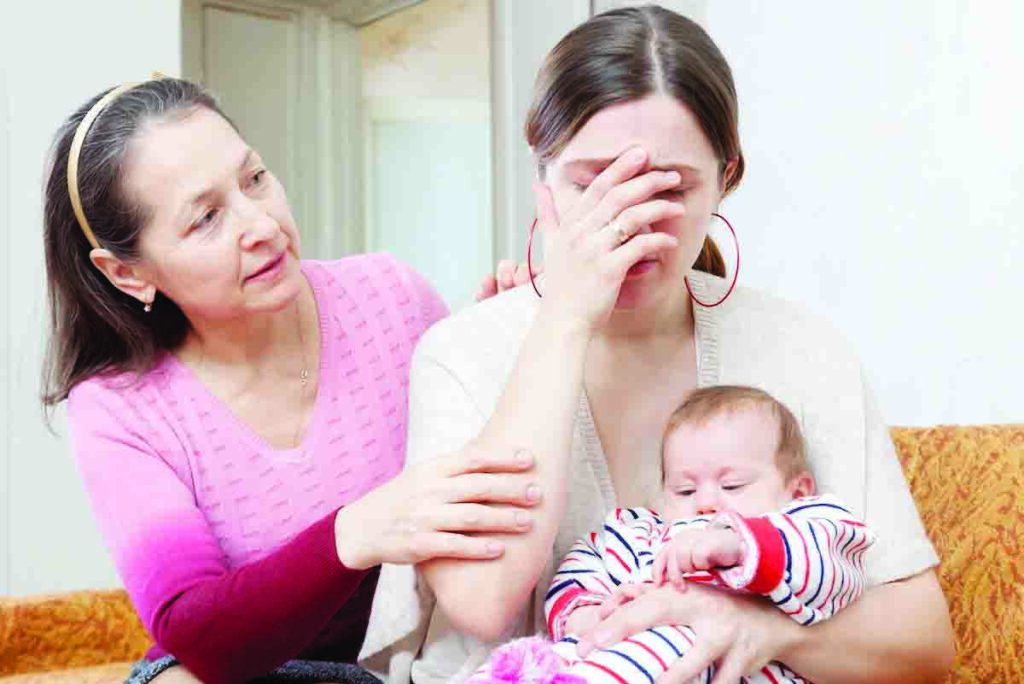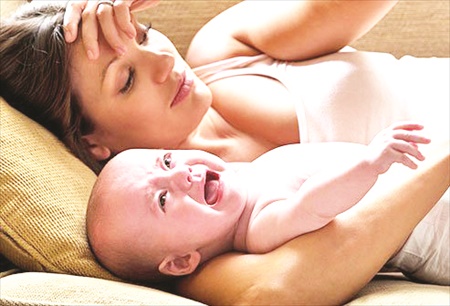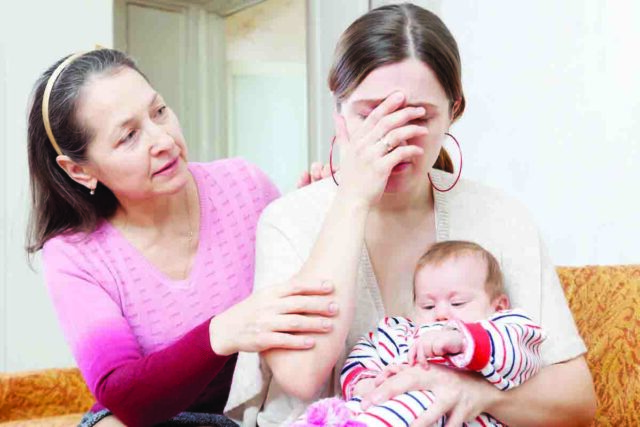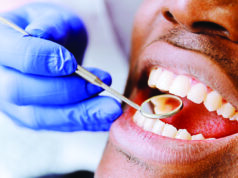Postpartum depression is a mental health disorder that is always ignored because everyone tends to pay attention to the new born, yet the new mother is struggling mentally due to the new experiences that come after birth.
In Uganda, the prevalence of postpartum depression has been estimated to be 6.1 per cent, among patients attending primary care clinics. Beatrice Nakibuuka explores the causes, therapy and other options of managing this disorder.

Muhindo’s experience
I had normal delivery in early 2021. Everything went well, labour was peaceful and I stayed in the hospital for only a day after birth.
The baby was healthy, I was breastfeeding steadily and generally, there was little or no frustration.
However, I did not feel a natural connection towards the baby.
All I felt was a feeling of responsibility and duty towards this child. Whenever I was asked how motherhood feels, I always responded that it is just a job, because that is what it felt like.
I knew that I had to eat in order to get breast milk, get some rest so that my body would produce breast milk, walk a bit, to reduce the back pain and whatever walking helps you with.
Everything I did at the time was because I have a child that depended on me for her survival. For the first two weeks of her life, my baby was quiet and slept all day and night.

I usually had to wake her up every two hours to feed. Then came colic period. The weeks that followed after that were characterised by inconsolable crying, and this happened at a particular time of day or night for a very prolonged period.
Sometimes she would cry for over three hours straight in the night, and this got me more frustrated. I started to develop feelings of immense sadness, and at times I would just sit and cry.
I was with my mother-in-law for the first month (God bless her), so we took turns whenever the baby cried.
But the sadness escalated daily, yet I could not point to a particular cause.
Lack of understanding
I felt overwhelmed, sad, anxious, scared, worried, and irritable.
There are times I would just be angry over nothing. I just felt like no one understood me or what I was going through. I felt like no one listened to me or cared.
Whenever I shared with anyone around me, they shunned my grievances, only telling me to eat for the baby’s sake, and blaming the ‘dot com’ era of mothers, who only care about losing weight.
They constantly reminded me to ‘grow up’, and all this worsened my situation. No one was listening and everyone made their own assumptions about me.

Reduction in milk
With time, my breast milk supply reduced. I remember one day, my breasts were so soft that nothing came out even when I squeezed them.
So, I opted for the formula milk regardless of the bad comments I received about it from my neighbours.
I could not stop because the baby needed to feed on something at least, since I was struggling with breastfeeding. I was extremely stressed about it.
Finding a listening ear
I was so tired and fed up of being home, looking at the same things and the same people.
So, I packed my bags and went to my friend’s house, whom I discovered had suffered the same ordeal after her first baby’s birth.
When I got into her house, I rested my baby on her couch and I cried for about 30 minutes.
I was fed up with eating just to get breast milk, and the fact that my whole schedule revolved around a child.
After sharing my story with her, I felt understood and liberated because she listened without judging or pointing fingers at me.
I have learned that the kind of people around you greatly determine your emotional state as a new mother.
Professional view
Evelyn Kharono Lufafa, a freelance counselling psychologist, describes postpartum depression as a range of physical and emotional changes that many new mothers experience, from feelings of excitement to worry, anger, fear and sadness.
She says sometimes this happens to women who were not prepared to have a baby, or if they get a miscarriage and fail to overcome it.
She remarks that it gets worse when the women go through stillbirths or those whose babies die after birth.
However, there are also some women that get depressed after giving birth and their baby is alive (baby blues).
She says: “For mothers that lose their babies, if the grieving process is not long enough or if they do not get the psychosocial support, they are likely to become depressed.
“Society worsens the situation of such mothers with rituals where the mother is not allowed to go for burial yet this really plays a big role in the healing process.”
In such a situation, the mother is sometimes too young and was not prepared for the baby, if there was a fight with the spouse, or not getting enough support from friends and relatives.
For Muhindo’s experience, the stress was worsened by those who ridiculed her complaints and focused at the baby’s health, without giving solution to her exhaustion.

Major symptoms
– Anger outbursts
– Withdrawal and sadness
– Crying all the time
– Loss of interest in everything including personal care
– Poor appetite
– Crying when the baby cries
– Somber mood
Male depression
Although usually ignored, male postpartum depression and anxiety due to childbirth is also common especially for a couple that is having their first child about three weeks after giving birth.
Society as a whole views the role of men in childbirth as passive and, therefore, depression resulting from the event can seem unwarranted.
Lufafa says: “The new father becomes overwhelmed by the new responsibilities of parenting and is having issues coping with them all.
“Some men become depressed because they feel that all the attention has been focused on the child and think that they are not being cared for.
“This is usually irrational, but affects the men greatly as the mother quickly bonds with the baby.”
The commonest risk factors to paternal postpartum depression include sleep deprivation, especially because of the baby crying a lot at night, and loss of a job that would otherwise be providing for the family.
If a mother is suffering from depression, the father is likely to suffer from it too. She adds that with a new baby, sexual activity and regular sleep are usually on hold.
These two factors can affect many men significantly as they may feel weary, lonely, confused and guilty, lack energy, unmotivated, frustrated and may have trouble focusing at work.
Therapy
Mothers who have baby blues need support from friends and relatives. In the event that a woman goes to extremes of postpartum depression, she can take antidepressants but under the prescription of a health worker.
Therefore, if you feel anxious and have extreme fears after giving birth, you need to confide in your spouse or relative that will help you seek medical attention when the need arises.
“When you realise you have symptoms mentioned above, you may need therapy from a therapist, psychologist, or social worker to help you learn how to change and start over again.
“It also helps to get in touch with other women who have gone through the same,” Lufafa says.
For Muhindo, her visit to the friend was therapeutic and was told that she needed to find something passionate to do, besides caring for the child.
She needed to take care of and rediscover herself, outside being a mother.
She choose to grow plants on her balcony. She says watering them, weeding and watching them grow gave her a fulfilling feeling to look forward to, outside being a parent.
She also started jogging every evening and this refreshed her. With time, the connection with her daughter blossomed. Now she is mentally healthy and enjoying the journey of motherhood.
More options
Lack of sleep can accelerate a number of mental health issues. As parents, you can agree to take shifts for night feeding, diaper change and general care for the baby while the other partner sleeps.
Many times the baby will make you feel so busy that you do not want to leave home, but it is important that you create time and move out.
Make social connections with friends and family to help you in the healing. Lufafa also recommends that men who are suffering from postpartum depression should always create time for workouts, at least three times a week.
In the situation where the couple loses the child, there is usually no specific amount of time to know when such a mother will get over the grief because different people react to situations differently.
Such deaths also impacts the father of the child. The two cannot be compared because mental health is personal and unique to every individual.
“When I get such a case, I let them go through the process by letting the mother go to the burial site, buy a wreath for her baby and let her say all those words she would say if the baby had been present.
“It is also important that you let such a mother give a name to the baby and recognise it as a human, which many people in society do not do.
“They keep telling the mother that she would get another child, forgetting the attachment she had with the baby and that she needs to grieve fully,”Lufafa says.
Men should also have enough grieving time even though society does not think that it is right for them to mourn and grieve over the death.
It takes time for a man to also heal from depression.
+++++++++++++++++++++++++++++++++++++++++
Subscribe to our website and be the first to receive great Christian news, health information, pastoral guidance, environment, farming and many others. Also, Like and follow us on Facebook at Good News UG.






















